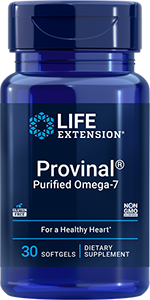Meta-analysis links greater calcium intake to lower colorectal cancer risk
Tuesday, March 25, 2014. The results of a dose-response meta-analysis published online on March 13, 2014 in the International Journal of Cancer support a reduced risk of colorectal cancer among men and women with a higher intake of calcium.
Edward L. Giovannucci, ScD, of Harvard School of Public Health and colleagues selected 21 publications reporting 20 prospective observational studies for their analysis. Analysis of overall intake of calcium, which involved studies that included a total of 1,415,597 participants among whom 12,305 cases of colorectal cancer occurred, uncovered an 8% lower risk of the disease in association with each 300 milligram per day increase in calcium intake. Those whose consumption of calcium averaged 1,000 milligrams per day (mg/day) had an 18% lower risk of the disease compared to those whose intake was 250 mg and among those whose intake was 1,750 mg, the risk was 26% lower.
Analysis of studies that examined supplemental calcium, which included 8,839 colorectal cancer cases among 920,837 subjects, revealed a 9% lower risk of the disease in association with each 300 mg/day increase.
The authors remark that calcium supplement users have a total intake of calcium that averages 1,000 mg per day in contrast with 650 mg daily among nonusers. "As the benefit of calcium intake on colorectal cancer is expected to continue beyond 1000 mg/day, not only nonsupplement users but also supplement users may further reduce their colorectal cancer risk through additional calcium intake," they write.
"While dairy products, especially milk, are the major sources of calcium in many countries, they are a substantial source of calories and contain potentially harmful factors," the authors note. "Given that all the studies on calcium supplements were from the U.S., future studies should evaluate the effect of supplementary calcium intake on colorectal cancer risk in diverse populations. Randomized trials of calcium supplements with at least 10 years of follow-up are warranted to confirm a role of calcium supplements as a chemopreventive agent against colorectal cancer."
|
 |
What's Hot
The journal Cancer Epidemiology, Biomarkers & Prevention published an article on June 10, 2013 which reports a benefit for the antidiabetic drug metformin in colorectal cancer survival.
The study involved 3,816 men and women with stage I-III colorectal cancer diagnosed between 2001 and 2006, including 207 diabetics who had been prescribed metformin, 108 diabetics who did not use the drug and 3,501 nondiabetics. The subjects were followed through 2010, during which 196 deaths occurred among those with diabetes and 1,897 occurred among the nondiabetics. Among the diabetic patients, 93 deaths were due to colorectal cancer, and 1,082 nondiabetic deaths were attributable to the disease.
When subjects treated with metformin were compared to diabetics who did not use the drug, a reduction in the risk of death due to colorectal cancer that "approached significance" was observed. However, those whose use of metformin was categorized as high intensity (higher dose), had a 56% lower risk of dying of the disease than diabetics who did not use the drug. Metformin use was additionally associated with a 31% lower adjusted risk of dying from any cause among diabetic subjects over follow-up.
"This study is the first, to the authors' knowledge, to assess the presence of an exposure response effect between increasing metformin use and colorectal cancer outcomes," authors Susan C. Spillane and her colleagues at St James Hospital in Dublin announce. "Significant associations were observed in stratified analyses of high intensity exclusive metformin usage and the results also suggest that metformin exposure may potentially improve survival relative to non-diabetic patients. Additional studies in larger population-based cohorts are required to further explore the influence of varying exposure levels and timing and to determine if any patient subgroups are more likely to benefit from metformin." |
 |
Highlight
Life Extension Magazine April 2014 Issue Available in Electronic Format

Reports
CoQ10: proven benefits in heart failure patients, by Bradley Tompkins
Omega-7 protects against metabolic syndrome, by Carol Stockton
Beyond depression . . . SAMe: Broad-spectrum protection against disorders of aging, by Michael Downey
Google wants to extend your life, by Michael Downey
Target wrinkle formation with novel peptides, by Robert Goldfaden and Gary Goldfaden, MD
The Supplement Pyramid: How to build your personalized nutritional regimen, by Michael A. Smith, MD
Departments
As we see it: unsustainable drug prices, by William Faloon
Author interview: Restoring The Human Body with Dr. Sergey Dzugan
In the News, by A. Pryce, ND, D. Dye and M. Richmond
Wellness Profile: Ross Pelton, by Jon Finkel |

|
Latest Products |
 |
|
Provinal® contains purified palmitoleic acid, an omega-7 monounsaturated fatty acid (MUFA). Palmitoleic acid is formed in the body from the conversion of glucose to fatty acids, or can be obtained in the diet from plant and marine sources. This fatty acid has been shown to support healthy cholesterol and C-reactive protein levels for those already within a normal range, and has a beneficial effect on other metabolic parameters.
Palmitoleic acid acts as a direct regulator of metabolism, with actions including:
- suppression of adipocyte cytokine expression
- promotion of pancreatic B cell proliferation and secretory function to support insulin production and glucose management
- enhancement of skeletal muscle glucose uptake
- stimulation of adipocyte peroxisome proliferator–activated receptor (PPAR)-gamma transcriptional activity, a nuclear receptor involved in fatty acid metabolism as well as modulation of cell proliferation and differentiation
Provinal® is a registered trademark of Tersus Pharmaceuticals, LLC.
|
|
 |
Related Articles
|
|

